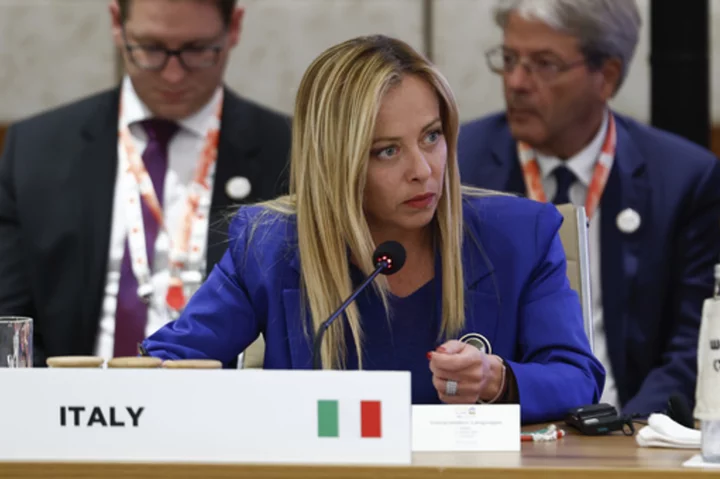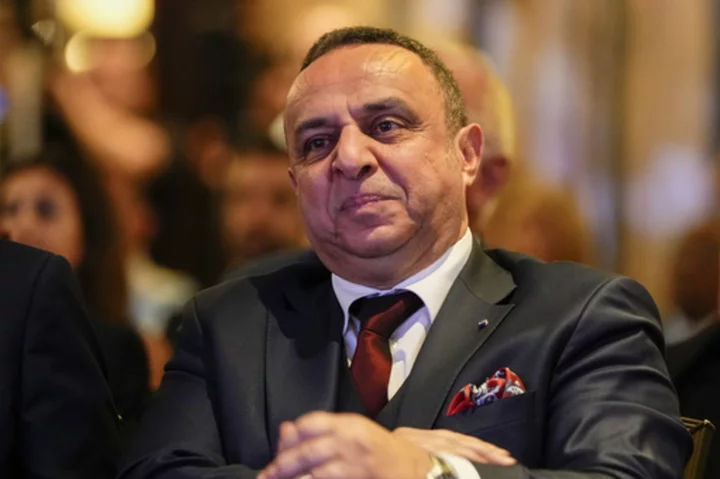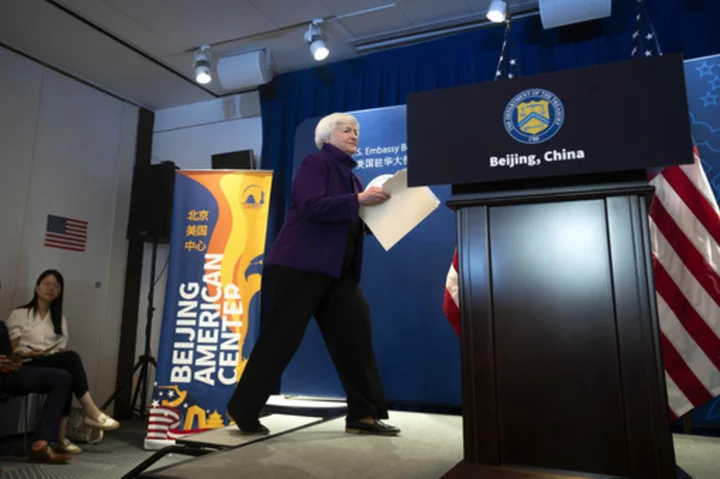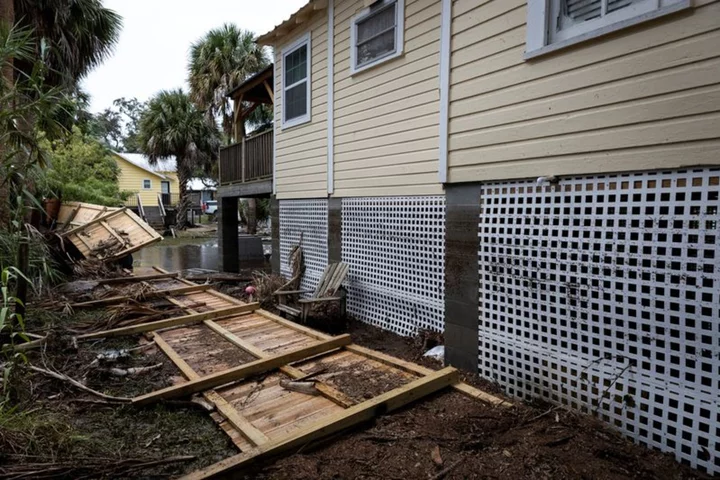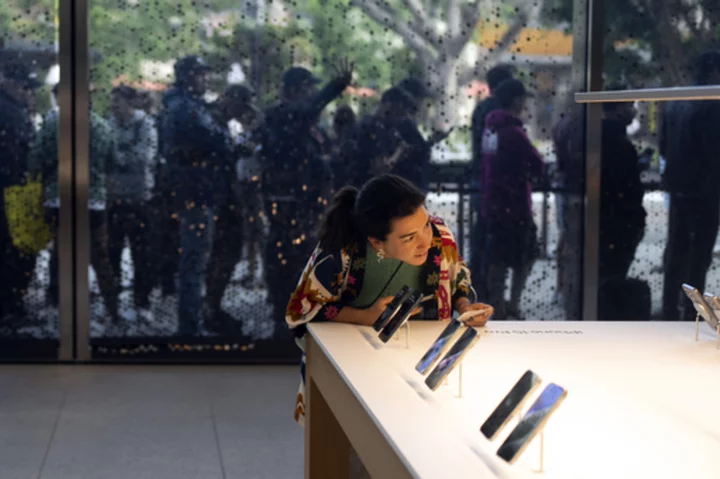ROME (AP) — Italian Premier Giorgia Meloni met with Chinese Premier Li Qiang on the sidelines of the G20 summit and vowed Saturday to “consolidate and deepen” relations, as Rome considers abandoning Beijing’s “Belt and Road” initiative of Chinese-built and -funded infrastructure projects.
Neither government mentioned the initiative in brief statements after the meeting in New Delhi, the first between Meloni and Li.
Rather, Meloni’s office said the meeting “confirmed the common intention to consolidate and deepen the dialogue between Rome and Beijing on the principal bilateral and international questions.”
Italy became the first G7 country to sign on to the initiative in 2019, when the anti-establishment 5-Star Movement was in power. Meloni at the time voiced strong opposition and her right-wing government now in power has indicated it wants to abandon the initiative, which must be renewed by the end of the year.
At the same time, though, Italy is keen to pursue an otherwise strong economic relationship with Beijing, and Meloni has acknowledged that the issue is delicate and must be managed carefully, given the bilateral trade and international implications.
China has tried to tout the benefits of the accord, with Foreign Minister Wang Yi telling his Italian counterpart Antonio Tajani just last week in Beijing that bilateral trade had grown from $50 billion to nearly $80 billion and that Italy’s exports to China increased by around 30% over the past five years.
Tajani, however, said in recent days that “we haven't obtained great results” from the deal, while stressing that Italy was still intent on reinforcing trade.
In a statement Saturday, Li emphasized the need to expand bilateral trade further and said China would continue to expand market access and create more opportunities for high-end Italian products to enter the Chinese market.
“A healthy and stable China-Italy relationship is in the common interests of both countries and is also what both countries need for better development,” the statement from China's Ministry of Foreign Affairs said, adding that China hoped Italy would provide a “fair, just and non-discriminatory business environment for Chinese companies to invest and operate in Italy.”
Meloni noted the millennial history between Italy and China and their 20-year strategic partnership, the anniversary of which will “advance the friendship and collaboration between the two nations in every section of common interest,” the Italian statement said.
China touts the “Belt and Road” initiative, known as the BRI, as successfully advancing infrastructure in underdeveloped nations. Critics say BRI built vanity projects in countries that needed poverty eradication and basic services, while the local governments were left with huge debts owed to Chinese state banks under contracts shrouded in secrecy.
In an analysis in May, a major Italian think-tank, the International Affairs Institute, noted that Meloni was “rebalancing Rome’s policy in the Far East by scaling down ties with Beijing and by effectively lending support to the United States and its Asian allies.”
On Saturday, leading daily Corriere della Sera said Meloni planned to put the matter of the BRI renewal to the Italian parliament, where her conservative forces enjoy a majority, to solidify the decision and give it the imprimatur of a parliamentary act of democracy. It quoted diplomatic sources as saying “there’s life after” BRI.

